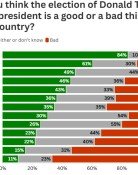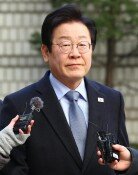Korea targets to boost service sector to global top 7th
Korea targets to boost service sector to global top 7th
Posted June. 07, 2023 08:21,
Updated June. 07, 2023 08:21
The Korean government announced plans to boost the service sector, which currently stands at 130 billion U.S. dollars, to 250 billion dollars by 2030 to lift Korea’s standing in the service business to the 7th largest in the world. The government held a task force meeting two days ago and announced that it would provide export finance of 64 trillion won over the next five years in contents building, health and medical care, and tourism. The plan aims to promote home-market-oriented service exports to the level of Korea’s highly competitive manufacturing sector.
The service industry is well-known for generating value-added jobs, but Korea’s competitiveness is yet to mature, compared to the manufacturing sector. Service has contributed to only 15% of exports for over 30 years. Service exports rank 15th largest in the world, much lower than manufacturing (6th largest). Korea’s service balance has been red for 24 years since 2000. Productivity, as of 2020, ranked only 25th among 36 OECD members.
As service sector competitiveness continues to remain mediocre, high-quality jobs are scarce. Jobs are mostly concentrated on low-value-added occupations such as the food and lodging business, and the scale is limited, barely absorbing resources that manufacturing could not accommodate. According to the National Tax Service, the number of self-employed increased by more than 1.8 million between 2017 and 2021. Still, annual average income continued to decline, breaking the 20 million-won threshold in 2021 to 19.52 million won.
Despite such limitations, the Service Industry Development Framework Act remains pending in the National Assembly. Ever since it was proposed in December 2011, it has remained pending for 12 years facing opposition from those against the privatization of the medical sector. The act aims to ease unnecessary regulations and give financial support and tax benefits to R&D performance. The government fails to provide systematic support without legislation to lay a basic framework in place,
Promoting the service sector would add another solid engine for Korea’s economy, solely on manufacturing. This explains why previous governments had failed to promote the sector. However, such commitment cannot be executed if the basic legislative framework is not in place. We have seen more than 30 service industry-related measures take place since 2001 but have yet to see concrete outcomes. We need to leverage AI and other leading technology to innovate the sector and develop an organized approach to minimize conflicts along the way. The aim to become seventh in the world should not just remain an empty slogan again.







